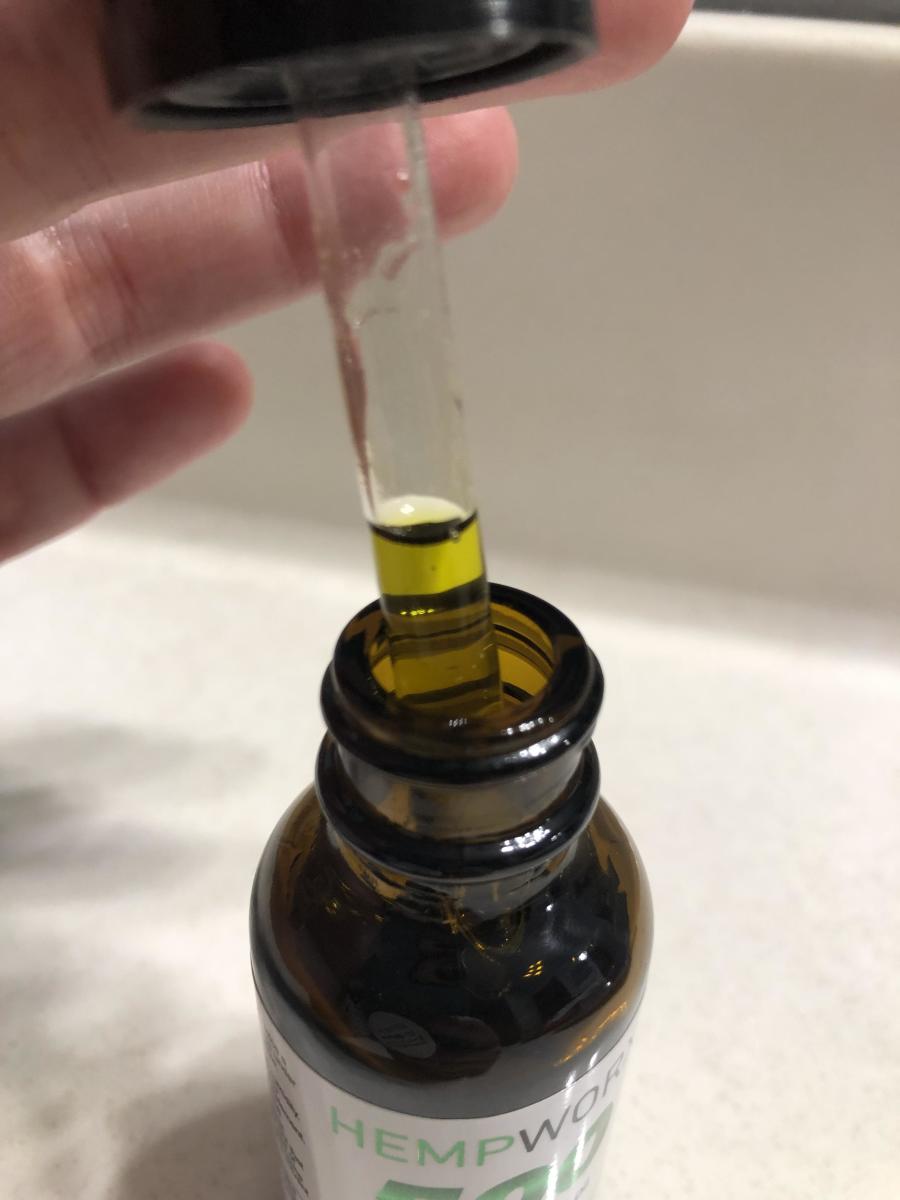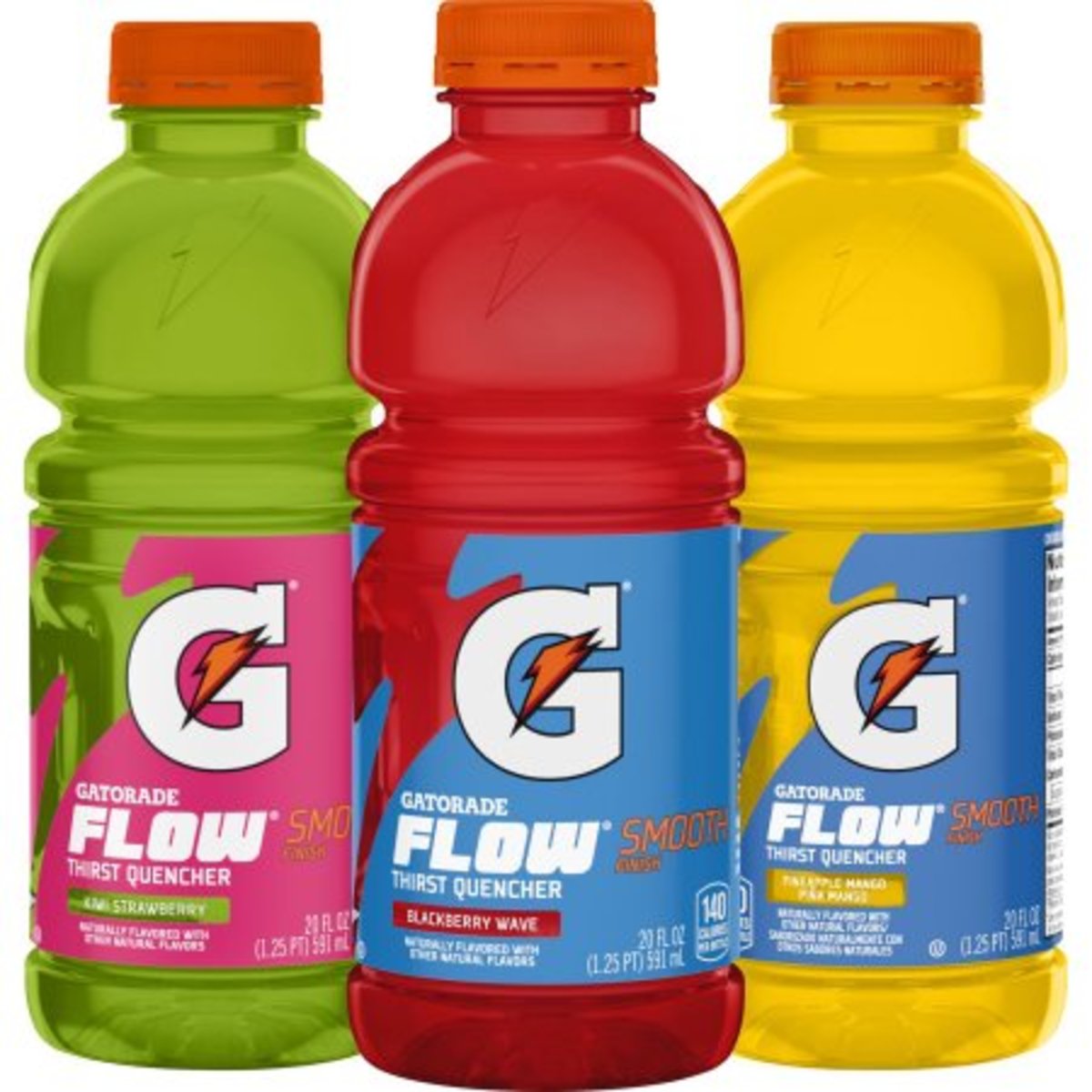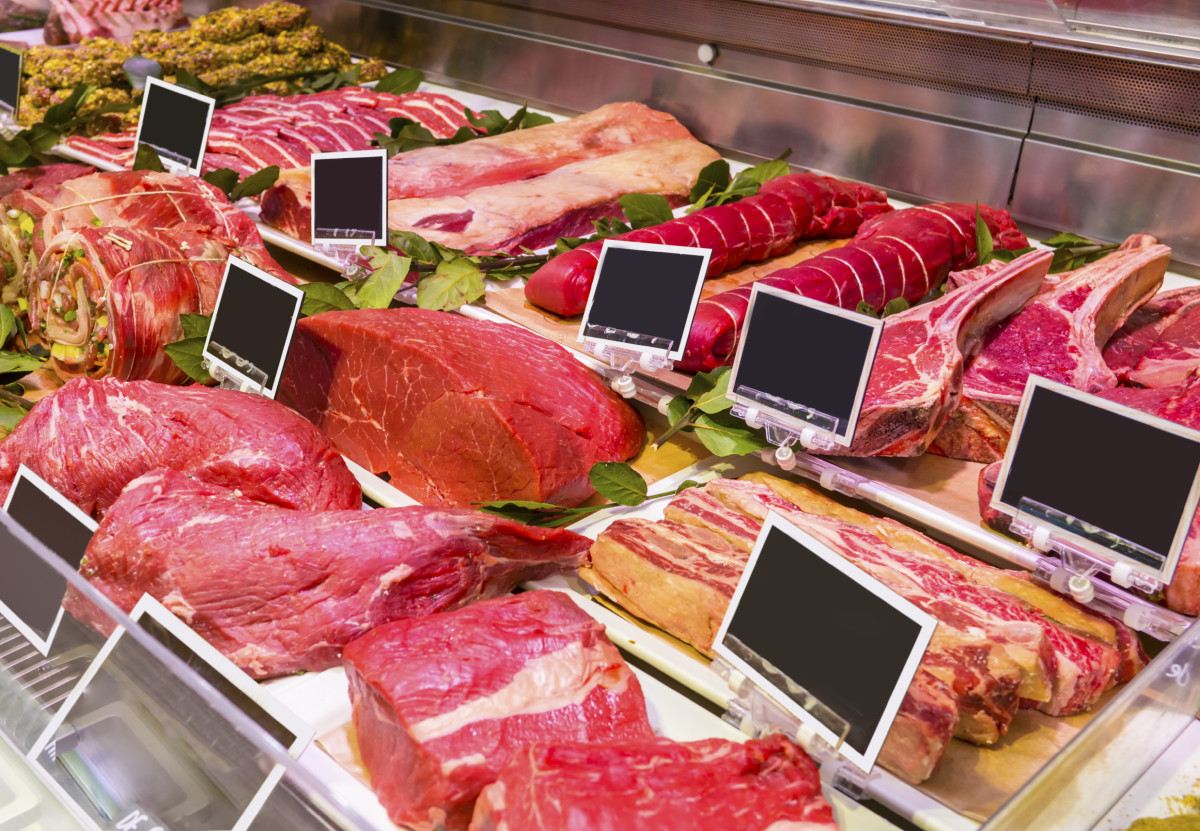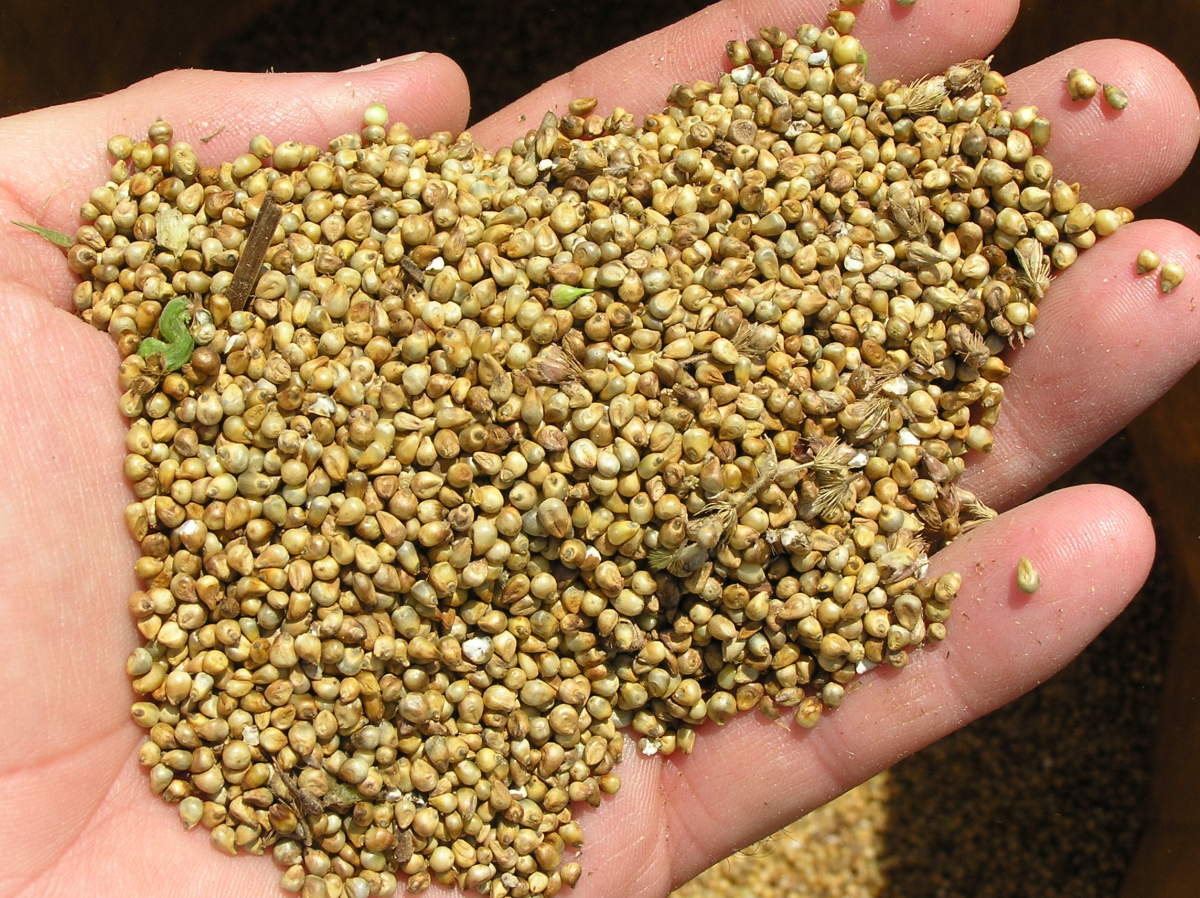Top 10 Foods High in Vitamin B12 for a Healthy Nervous System, Red Blood Cells & Maintaining Nerve Cells
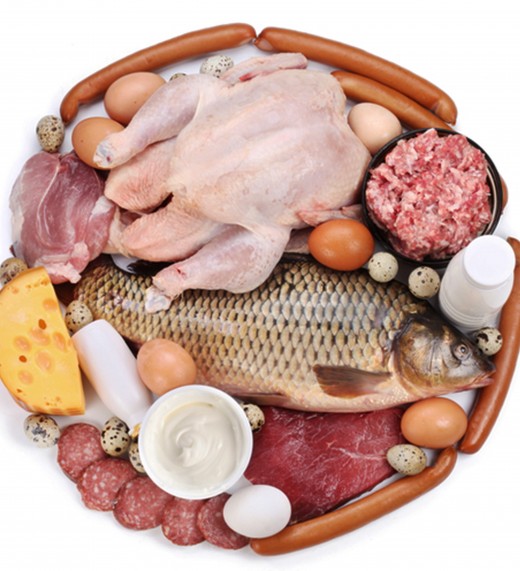
10. Kellogg's All Bran Complete Wheat Flakes
In 3/4 cup (29 grams) of Kellogg's All Bran Complete Wheat Flakes, there are 92 calories, 1 gram of total fat, 207 milligrams of sodium, 23 grams of total carbohydrates, 5 grams of dietary fiber, 5 grams of sugar and 3 grams of protein. For vitamins, there is 750 IU of vitamin A (15% of daily value), 60 milligrams of vitamin C (100% of daily value), 40 IU of vitamin D (10% of daily value), 13.4 milligrams of vitamin E (67% of daily value), .5 micrograms of vitamin K (1% of daily value), 1.5 milligrams of thiamin (101% of daily value), 1.7 milligrams of riboflavin (101% of daily value), 20 milligrams of niacin (100% of daily value), 2 milligrams of vitamin B6 (102% of daily value), 400 micrograms of folate (100% of daily value), 6 micrograms of vitamin B12 (100% of daily value), 10 milligrams of pantothenic acid (100% of daily value) and 8 milligrams of choline.
For minerals, there are 15.1 milligrams of calcium (2% of daily value), 18 milligrams of iron (100% of daily value), 55.4 milligrams of magnesium (14% of daily value), 139 milligrams of phosphorus (14% of daily value), 171 milligrams of potassium (5% of daily value), 15.1 milligrams of zinc (101% of daily value), .1 milligrams of copper (7% of daily value) and 3 micrograms of selenium (4% of daily value). For fatty acids, there are 20 milligrams of the omega-3 fatty acids and 298 milligrams of the omega-6 fatty acids per serving. There are a lot of different types of whole grain and wheat cereals containing this vitamin.
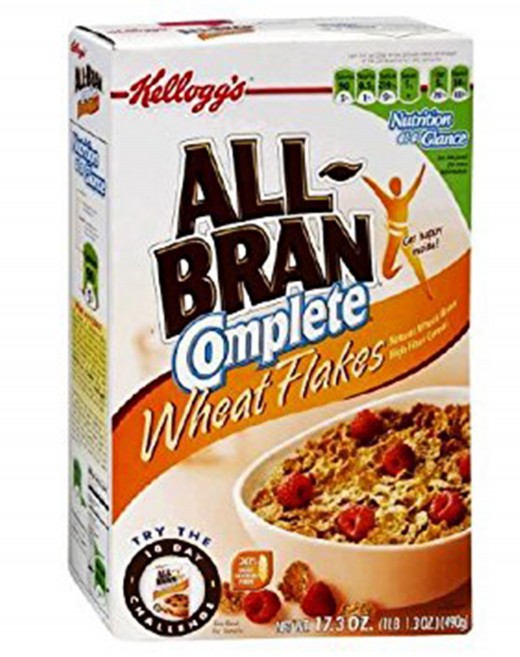
9. Multi-Grain Cheerios
In 1 cup (30 grams) of cheerios, there are 114 calories, 1 gram of total fat, 207 milligrams of sodium, 25 grams of total carbohydrates, 3 grams of dietary fiber, 6 grams of sugar and 2 grams of protein. For vitamins, there is 517 IU of vitamin A (10% of daily value), 15.5 milligrams of vitamin C (26% of daily value), 41.4 IU of vitamin D (10% of daily value), 14 milligrams of vitamin E (70% of daily value), 1.6 milligrams of thiamin (103% of daily value), 1.8 milligrams of riboflavin (103% of daily value), 20.7 milligrams of niacin (103% of daily value), 2.1 milligrams of vitamin B6 (103% of daily value), 414 micrograms of folate (103% of daily value), 6.2 micrograms of vitamin B12 (103% of daily value), 10.3 milligrams of pantothenic acid (103% of daily value) and 7.8 milligrams of choline.
For minerals, there are 104 milligrams of calcium (10% of daily value), 18.6 milligrams of iron (103% of daily value), 24.9 milligrams of magnesium (6% of daily value), 82.8 milligrams of phosphorus (8% of daily value), 87.9 milligrams of potassium (3% of daily value), 15.5 milligrams of zinc (103% of daily value), .5 milligrams of manganese (25% of daily value) and 5 micrograms of selenium (7% of daily value). For fatty acids, there are 15.9 milligrams of the omega-3 fatty acids and 398 milligrams of the omega-6 fatty acids per serving.
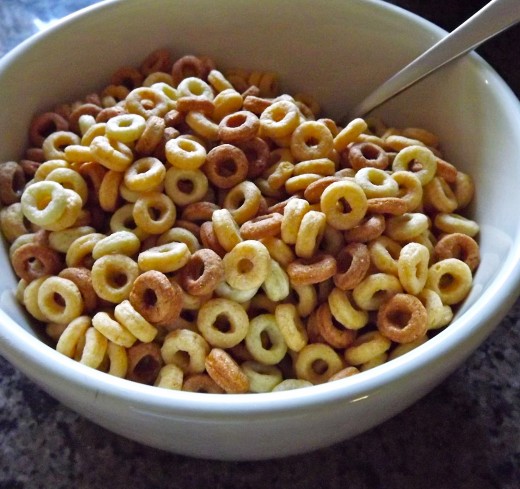
8. Steelhead Trout
In 1 ounce (28 grams) of steelhead trout, there are 107 calories, 2 grams of total fat, 64 milligrams of cholesterol, 798 milligrams of sodium and 22 grams of protein. For vitamins, there is 59.1 IU of vitamin A (1% of daily value), 176 IU of vitamin D (44% of daily value), .7 milligrams of vitamin E (3% of daily value) and 6.3 micrograms of vitamin B12 (105% of daily value). For minerals, there are 23.8 milligrams of calcium (2% of daily value), .8 milligrams of iron (5% of daily value), 23.5 milligrams of magnesium (6% of daily value), 273 milligrams of phosphorus (27% of daily value), 482 milligrams of potassium (14% of daily value), .5 milligrams of zinc (3% of daily value), .1 milligrams of copper (3% of daily value) and 29.4 micrograms of selenium (42% of daily value). For fatty acids, there are 445 milligrams of omega-3 fatty acids and 24.9 milligrams of the omega-6 fatty acids per serving.
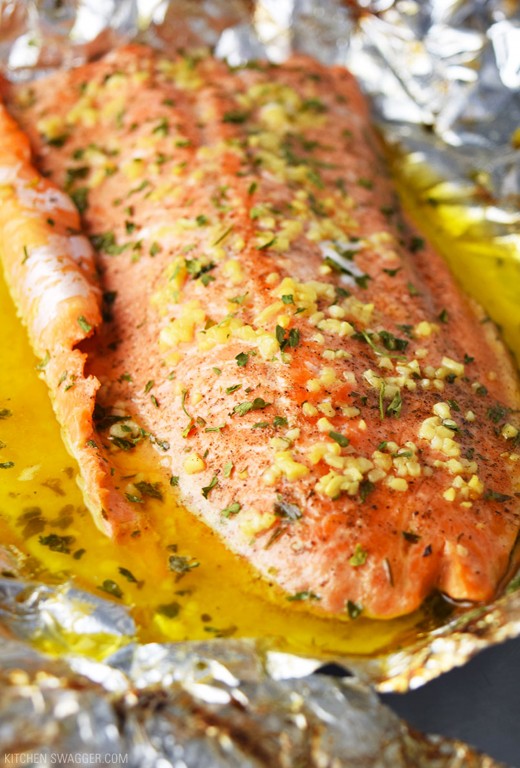
7. Sardines
In 1 cup (149 grams) of Atlantic sardines, there are 310 calories, 17 grams of total fat, 212 milligrams of cholesterol, 752 milligrams of sodium and 37 grams of protein. For vitamins, there is 161 IU of vitamin A (3% of daily value), 405 IU of vitamin D (101% of daily value), 3 milligrams of vitamin E (15% of daily value), 3.9 micrograms of vitamin K (5% of daily value), .1 milligrams of thiamin (8% of daily value), .3 milligrams of riboflavin (20% of daily value), 7.8 milligrams of niacin (39% of daily value), .2 milligrams of vitamin B6 (12% of daily value), 17.9 micrograms of folate (4% of daily value), 13.3 micrograms of vitamin B12 (222% of daily value), 1 milligram of pantothenic acid (10% of daily value) and 127 milligrams of choline.
For minerals, there are 569 milligrams of calcium (57% of daily value), 4.4 milligrams of iron (24% of daily value), 58.1 milligrams of magnesium (15% of daily value), 730 milligrams of phosphorus (73% of daily value), 592 milligrams of potassium (17% of daily value), 2 milligrams of zinc (13% of daily value), .3 milligrams of copper (14% of daily value), .2 milligrams of manganese (8% of daily value) and 78.5 micrograms of selenium (112% of daily value). For fatty acids, there are 2,205 milligrams of the omega-3 fatty acids and 5,280 milligrams of the omega-6 fatty acids for each serving size.
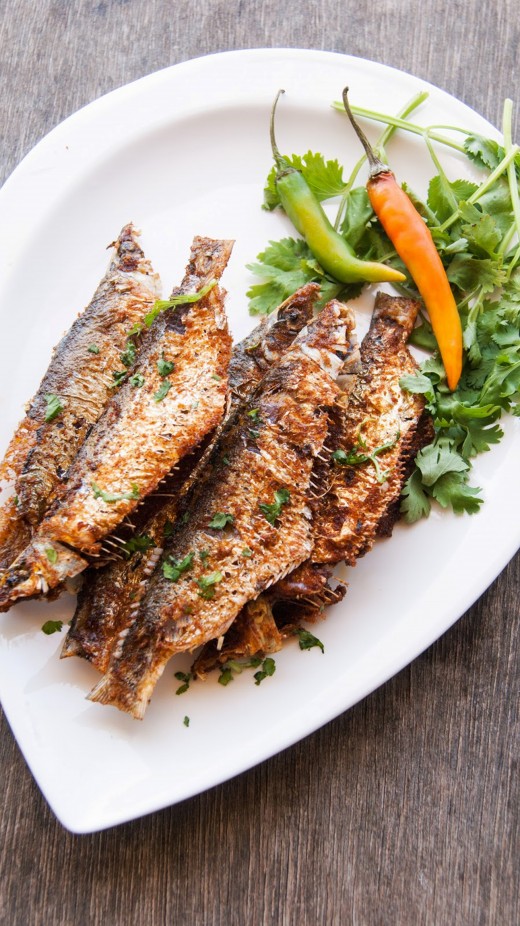
6. Mussels (Mollusks)
In 1 cup (150 grams) of fresh mussels, there are 129 calories, 3 grams of total fat, 1 gram of saturated fat, 42 milligrams of cholesterol, 429 milligrams of sodium, 6 grams of total carbohydrates and 18 grams of protein. For vitamins, there is 240 IU of vitamin A (5% of daily value), 12 milligrams of vitamin C (20% of daily value), .8 milligrams of vitamin E (4% of daily value), .2 milligrams of thiamin (16% of daily value), .3 milligrams of riboflavin (19% of daily value), 2.4 milligrams of niacin (12% of daily value), .1 milligram of vitamin B6 (4% of daily value), 63 micrograms of folate (16% of daily value), 18 micrograms of vitamin B12 (300% of daily value), .7 milligrams of pantothenic acid (7% of daily value) and 97.5 milligrams of choline.
For minerals, there are 39 milligrams of calcium (4% of daily value), 5.9 milligrams of iron (33% of daily value), 51 milligrams of magnesium (13% of daily value), 295 milligrams of phosphorus (30% of daily value), 480 milligrams of potassium (14% of daily value), 2.4 milligrams of zinc (16% of daily value), .1 milligrams of copper (7% of daily value), 5.1 milligrams of manganese (255% of daily value) and 67.2 micrograms of selenium (96% of daily value). For fatty acids, there are 724 milligrams of the omega-3 fatty acids and 27 milligrams of the omega-6 fatty acids in each serving.
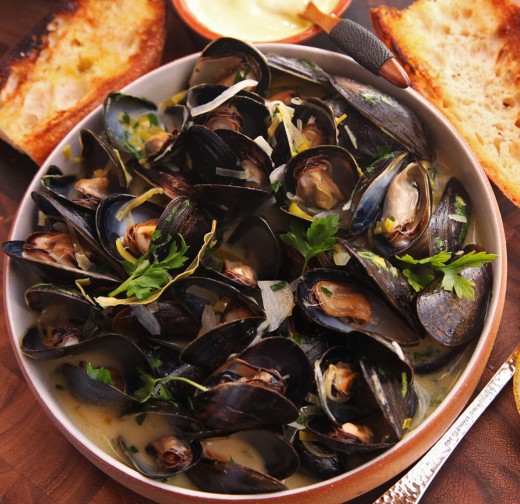
5. Wild Oysters
In 100 grams of eastern, wild oysters, there are 68 calories, 2 grams of total fat, 53 milligrams of cholesterol, 211 milligrams of sodium, 4 grams of total carbohydrates and 7 grams of protein. For vitamins, there is 100 IU of vitamin A (2% of daily value), 3.7 milligrams of vitamin C (6% of daily value), 320 IU of vitamin D (80% of daily value), .9 milligrams of vitamin E (4% of daily value), .1 milligrams of thiamin (7% of daily value), .1 milligrams of riboflavin (6% of daily value), 1.4 milligrams of niacin (7% of daily value), .1 milligrams of vitamin B6 (3% of daily value), 10 micrograms of folate (2% of daily value), 19.5 micrograms of vitamin B12 (324% of daily value), .2 milligrams of pantothenic acid (2% of daily value) and 65 milligrams of choline.
For minerals, there are 45 milligrams of calcium (4% of daily value), 6.7 milligrams of iron (37% of daily value), 47 milligrams of magnesium (12% of daily value), 135 milligrams of phosphorus (14% of daily value), 156 milligrams of potassium (4% of daily value), 90.8 milligrams of zinc (605% of daily value), 4.5 milligrams of copper (223% of daily value), .4 milligrams of manganese (18% of daily value) and 63.7 micrograms of selenium (91% of daily value). For fatty acids, there are 672 milligrams of the omega-3 fatty acids and 58 milligrams of the omega-6 fatty acids.
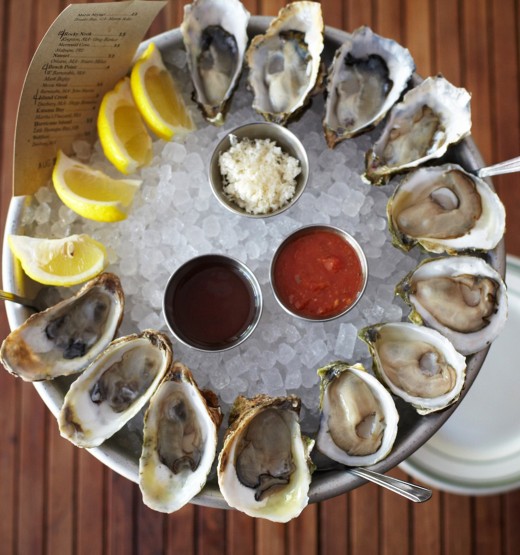
4. Herring
In 1 fillet (184 grams) of Atlantic herring, there are 291 calories, 17 grams of total fat, 110 milligrams of cholesterol, 166 milligrams of sodium and 33 grams of protein. For vitamins, there is 171 IU of vitamin A (3% of daily value), 1.3 milligrams of vitamin C (2% of daily value), 2,996 IU of vitamin D (749% of daily value), 2 milligrams of vitamin E (10% of daily value), .2 milligrams of thiamin (11% of daily value), .4 milligrams of riboflavin (25% of daily value), 5.9 milligrams of niacin (30% of daily value), .6 milligrams of vitamin B6 (28% of daily value), 18.4 micrograms of folate (5% of daily value), 25.2 micrograms of vitamin B12 (419% of daily value), 1.2 milligrams of pantothenic acid (12% of daily value) and 120 milligrams of choline.
For minerals, there are 105 milligrams of calcium (10% of daily value), 2 milligrams of iron (11% of daily value), 58.9 milligrams of magnesium (15% of daily value), 434 milligrams of phosphorus (43% of daily value), 602 milligrams of potassium (17% of daily value), 1.8 milligrams of zinc (12% of daily value), .2 milligrams of copper (8% of daily value), .1 milligrams of manganese (3% of daily value) and 67.2 micrograms of selenium (96% of daily value). There are also 3,181 milligrams of the omega-3 fatty acids along with 239 milligrams of the omega-6 fatty acids.

3. Beef Liver
In one 100 gram serving size, there are 135 calories, 4 grams of total fat, 275 milligrams of cholesterol, 69 milligrams of sodium, 4 grams of total carbohydrates and 20 grams of protein. For vitamins, there is 16,899 IU of vitamin A (338% of daily value), 1.3 milligrams of vitamin C (2% of daily value), 16 IU of vitamin D (4% of daily value), .4 milligrams of vitamin E (2% of daily value), 3.1 micrograms of vitamin K (4% of daily value), .2 milligrams of thiamin (13% of daily value), 2.8 milligrams of riboflavin (162% of daily value), 13.2 milligrams of niacin (66% of daily value), 1.1 milligrams of vitamin B6 (54% of daily value), 290 micrograms of folate (72% of daily value), 59.3 micrograms of vitamin B12 (988% of daily value), 7.2 milligrams of pantothenic acid (72% of daily value), 333 milligrams of choline and 4.4 milligrams of betaine.
For minerals, there are 5 milligrams of calcium (1% of daily value), 4.9 milligrams of iron (27% of daily value), 18 milligrams of magnesium (5% of daily value), 387 milligrams of phosphorus (39% of daily value), 313 milligrams of potassium (9% of daily value), 4 milligrams of zinc (27% of daily value), 9.8 milligrams of copper (488% of daily value), .3 milligrams of manganese (16% of daily value) and 39.7 micrograms of selenium (57% of daily value). For fatty acids, there are 7 milligrams of the omega-3 fatty acids and 318 milligrams of the omega-6 fatty acids.
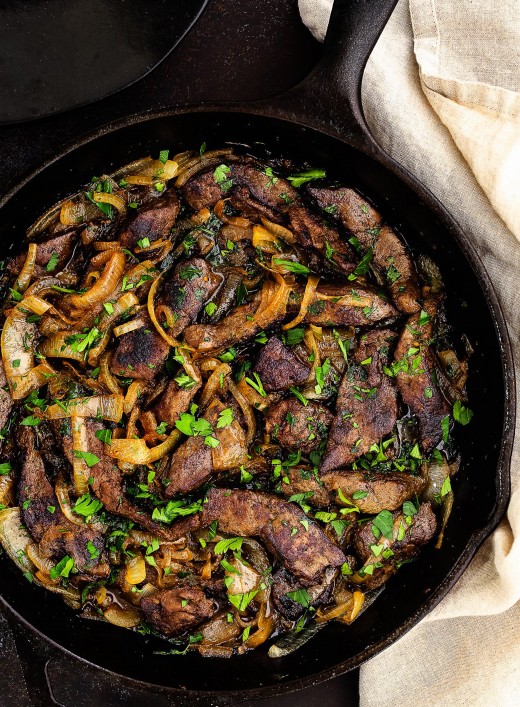
2. Turkey Giblet
In one turkey giblet (244 grams), there are 315 calories, 10 grams of total fat, 3 grams of saturated fat, 688 milligrams of cholesterol, 212 milligrams of sodium, 5 grams of total carbohydrates and 47 grams of protein. For vitamins, there is 18,704 IU of vitamin A (374% of daily value), 9.3 milligrams of vitamin C (15% of daily value), .2 milligrams of thiamin (12% of daily value), 2.8 milligrams of riboflavin (164% of daily value), 15.4 milligrams of niacin (77% of daily value), 1 milligram of vitamin B6 (52% of daily value), 835 micrograms of folate (209% of daily value), 69.3 micrograms of vitamin B12 (1,154% of daily value) and 9.6 milligrams of pantothenic acid (96% of daily value).
For minerals, there are 19.5 milligrams of calcium (2% of daily value), 16.7 milligrams of iron (93% of daily value), 46.4 milligrams of magnesium (12% of daily value), 537 milligrams of phosphorus (54% of daily value), 771 milligrams of potassium (22% of daily value), 5.8 milligrams of zinc (39% of daily value), .8 milligrams of copper (38% of daily value), .4 milligrams of manganese (19% of daily value) and 346 micrograms of selenium (495% of daily value). For fatty acids, there are 24.4 milligrams of the omega-3 fatty acids and 1,733 milligrams of the omega-6 fatty acids per serving.
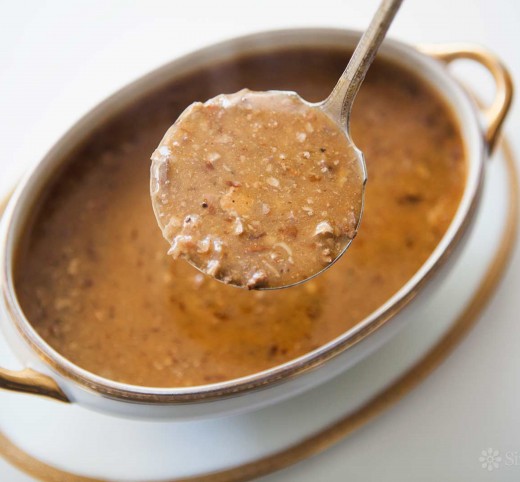
1. Lamb Kidney
In 100 grams of lamb kidney, there are 137 calories, 4 grams of total fat, 1 gram of saturated fat, 565 milligrams of cholesterol, 151 milligrams of sodium, 1 gram of total carbohydrates and 24 grams of protein. For vitamins, there is 455 IU of vitamin A (9% of daily value), 12 milligrams of vitamin C (20% of daily value), .4 milligrams of thiamin (23% of daily value), 2.1 milligrams of riboflavin (122% of daily value), 6 milligrams of niacin (30% of daily value), .1 milligrams of vitamin B6 (6% of daily value), 81 micrograms of folate (20% of daily value), 78.9 micrograms of vitamin B12 (1,315% of daily value) and 2 milligrams of pantothenic acid (20% of daily value).
For minerals, there are 18 milligrams of calcium (2% of daily value), 12.4 milligrams of iron (69% of daily value), 20 milligrams of magnesium (5% of daily value), 290 milligrams of phosphorus (29% of daily value), 178 milligrams of potassium (5% of daily value), 3.8 milligrams of zinc (25% of daily value), .4 milligrams of copper (18% of daily value), .1 milligrams of manganese (7% of daily value) and 219 micrograms of selenium (313% of daily value). For fatty acids, there are 240 milligrams of the omega-3 fatty acids and 260 milligrams of the omega-6 fatty acids per each serving size.
In conclusion, lamb kidney, turkey giblet, sardines, herring, steelhead trout, wild oysters, Multi-Grain Cheerios, beef liver, mussels and Kellogg's All Bran Complete Wheat Flakes are all the best sources of vitamin B12. Other great sources include the whole grain Total cereal, eggs, veal liver, whole milk products, liver sausage, caviar, octopus, smelt and salmon. A lot of different types of cereals contain vitamin B12. It is possible for this vitamin to be stored in the liver. So, identifying a deficiency can be quite difficult. It is recommended by doctors for people to start getting their vitamin B12 levels evaluated every five years starting at the age of 60. Common deficiency symptoms include pernicious anemia and nervous disorders.
For adult men and women, the Recommended Dietary Allowance (RDA) of B12 is 2.4 micrograms. However, more active individuals may benefit consuming 6 micrograms daily. There is no known tolerable upper intake limit for this vitamin. Having said that, overdose of B12, which would be consuming over 2,000 micrograms every day, can later lead to acne, rashes, urine discoloration, and even elevated blood pressure.

References
Bauer, J. (2005). The complete idiot's guide to total nutrition (4th ed.). New York, New York: Penguin Group.
Biagioli, B. (2012). Advanced concepts of personal training. Coral Gables, Florida: National Council on Strength & Fitness.
Keller, L. (2000). The men's health hard-body plan: the ultimate 12-week program for burning fat and building muscle. Emmaus, Pennsylvania: Rodale, Inc.
Raw nutrition facts & calories. (2014). SELFNutritionData. Retrieved from http://nutritiondata.self.com/
Personal Preferences
Which food high in vitamin B12 is your most favorite?
© 2018 James Foglio


